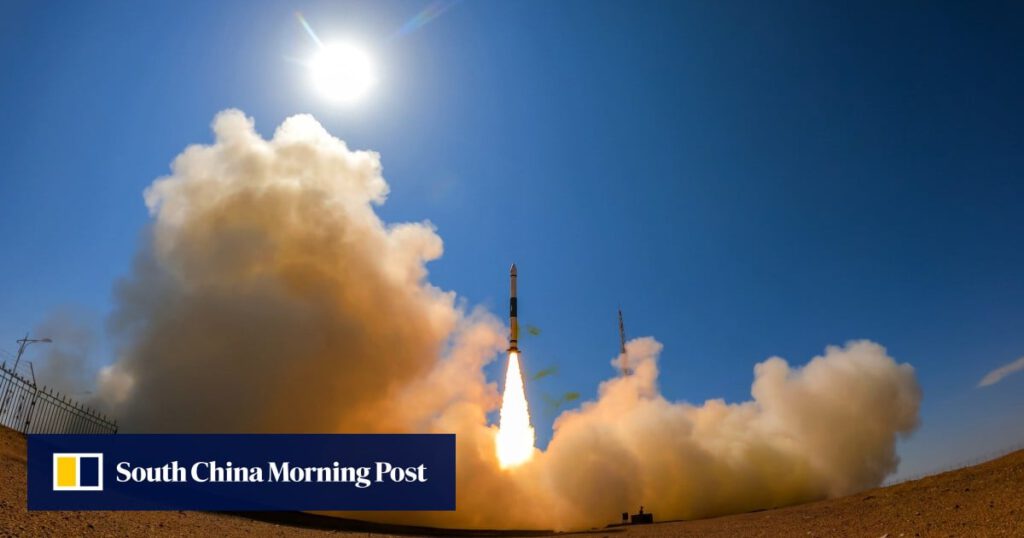“[It is also] It will expand long-range firing capabilities, improving the accuracy, range and ultimately lethality of ground forces.”
04:00
China has launched its 12th manned space mission with the Shenzhou 17 crew bound for the Tiangong Space Station.
China has launched its 12th manned space mission with the Shenzhou 17 crew bound for the Tiangong Space Station.
China’s Defense Ministry responded by saying the United States was using so-called threats from other countries as an excuse to expand its own military power.
“China has always advocated the peaceful use of space and opposed the arms race in space. We urge the United States to abandon the Cold War-era zero-sum mentality, stop spreading disinformation, and end the arms race in space,” defence ministry spokesman Zhang Xiaogang said.
In his testimony Thursday, Whiting described Beijing, along with Moscow, as Washington’s “major space competitor” and said that by most estimates China will achieve world-class status in all but a few space technology areas by 2030.
“The PLA is focused on offsetting U.S. military advantages, rapidly advancing and integrating forces in all domains, and supporting a comprehensive approach to united frontship,” he said of the PLA.
“To maintain an enduring competitive advantage, it is imperative that our command advocates for the provision of new space capabilities and capacity.”
Whiting said China is working on advances in satellite meteorology, human spaceflight and robotic space exploration, and its intelligence satellite network has grown to “more than 359 systems as of January,” more than triple the number in 2018.
“China’s space and counterspace systems are dramatically increasing its ability to monitor, track and target U.S. and allied forces, both on the ground and in orbit,” Whiting said, referring to China.
01:27
China beats SpaceX in world’s first methane-fueled rocket launch
China beats SpaceX in world’s first methane-fueled rocket launch
Some of the newly deployed satellites could function as weapons that could pose a danger to U.S. assets, he said.
Additionally, Whiting said, Beijing is developing hypersonic glide vehicles and other advanced space weapons that could overcome U.S. conventional missile warning and ballistic missile defense systems.
In recent years, the rapid expansion of satellite networks and related technologies has intensified competition in space between China and the United States.
Competition in the space domain has been a concern ever since the Soviet Union and the United States developed and tested anti-satellite weapons during the Cold War.
The United States and China have ratified the 1967 Outer Space Treaty, which bans the use of nuclear weapons or other weapons of mass destruction in space.

